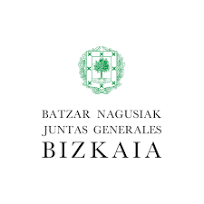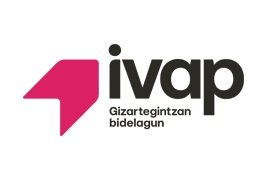Pasado, presente y futuro del pactismo. Historia y política más allá del mito
Description
Este Curso de Verano estudiará la idea y la práctica del pactismo como forma política a través del tiempo: desde la Edad Media hasta el presente. Desentrañaremos sus ecos en el pensamiento político de las distintas épocas, estudiaremos sus prácticas institucionales y nos preguntaremos por sus manifestaciones culturales, populares y patrimoniales.
Objectives
Analizaremos las características más propias de esta cultura del pacto que marca la identidad jurídico política del país en distintos momentos de la historia.
Se buscará una lectura de actualidad del pactismo para identificar algunas de sus señas distintivas y, acaso, su potencialidad presente y futura.
Activity directed to
- All public
- University student
- Students not from university
- Professionals
- Junteros y funcionarios de la Casa de Juntas y de la Diputación.
Organised by
In collaboration with
Program
24-06-2024
Casa de Juntas, sala de las vidrieras
“Inauguración presidenta Juntas y rectora UPV“
- Itziar Alkorta Idiakez | UIK - Directora
- Ana Otadui | Juntas Generales de Bizkaia - Presidenta
Presentation by the Director of the activity
- Mikel Mancisidor de la Fuente
- Itziar Lizeaga Romero | Juntas Generales - Letrada
“Facetas del pactismo y de su evolución en la doctrina jurídica y política, en el contexto ibérico y europeo “
- Jon Arrieta | UPV/EHU
“Formación y desarrollo del pactismo vizcaíno“
- Gregorio Javier Monreal Cia | Universidad Pública de Navarra - Catedrático de Historia del Derecho
Pausa café
“Del consenso a la ruptura. El pactismo como garante del orden interno en las provincias vascas (1718-1839)“
- Andoni Artola Renedo | UPV - Profesor
“Pactismo, derechos históricos en la constitución y el pacto foral intracomunitario: Las Juntas Generales restablecidas y actualizadas en el marco del Estatuto de Gernika“
- Itziar Lizeaga Romero | Juntas Generales - Letrada
“Biblioteca de Casa de Juntas: Presentación ejemplar De Pactis 1528 y presentación de la edición crítica de De Pactis (2024)“
- Ana Otadui | Juntas Generales de Bizaia - Presidenta
- Roldán Jimeno Aranguren | Iura Vasconiae - Presidente
- Juan José Álvarez Rubio | Globernance
“La recepción del De pactis en la literatura jurídica de los reinos peninsulares“
- Javier Garcia Martin | UPV/EHU
“Análisis estilístico y lingüístico del De Pactis de Fortún García de Ercilla“
- Peru Amorrortu Barrenetxea | Historiador y filólogo, traductor de la obra
“Las ediciones del De Pactis (1514-2024). El Pacto, el poder del monarca y la fidelidad a la palabra en Fortún García“
- Mikel Mancisidor de la Fuente
Txakoli cortesía de Juntas Generales
25-06-2024
Casa de Juntas – Museo Euskal Herria, sala de las vidrieras
“El pactismo del reino de Aragón: de su primera formulación (s.XV) a su adaptación a los discursos constitucionales contemporáneos “
- Jesús Morales Arrizabalaga | Universidad de Zaragoza
“Pactismo y momentos constitucionales“
- Xavier Gil | Universitat de Barcelona
“Debate dirigido por“
- Jon Arrieta | UPV/EHU
Pausa café
“El pactismo contemporáneo 1978-2023“
- Josu Erkoreka
Traslado al contiguo Museo Euskal Herria
“El pactismo, la foralidad y el patrimonio material“
- Leire Irazabal Basabe | Museo Euskal Herria - Directora
Closing session
Conclusiones/agradecimientos
- Mikel Mancisidor de la Fuente
- Itziar Lizeaga Romero | Juntas Generales - Letrada
Directors

Mikel Mancisidor de la Fuente
Universidad de Deusto
Mikel Mancisidor has a degree in Law and is doctor in International Relations and Diplomacy (DIR GSD) and doctor in History (Universidad de Deusto). He has been Rapporteur of the General Comment on Science and Human Rights of the UN Committee on ESCR (he has been a member of this committee since 2013). He has taught International Law and International Human Rights Law at Deusto, American University and Institute René Cassin. He was awarded the Gold Medal of Rights 2013 and the Eusko Ikaskuntza - Caja Laboral Humanities Award 2020.

Itziar Lizeaga Romero
Bizkaiko Batzar Nagusiak
Speakers

Juan José Álvarez Rubio
UPV/EHU, Catedrático Derecho internacional privado
Juan José Álvarez Rubio (Zumaia, 1964) is Professor of Private International Law at the University of the Basque Country (UPV/EHU), where he obtained his Bachelor's degree with Extraordinary Prize and his PhD, also distinguished with the Extraordinary Prize (1995). He is Secretary of GLOBERNANCE and was Secretary-General of the Basque Council of the European Movement (EUROBASK/CVME) between 2003 and 2012. He is currently Chairman of the FEDIP (Spanish Forum on Private International Law). He was appointed expert by the European Commission in 2007 in the areas of civil justice, borders, data protection and security. He is principal investigator of the eAtlantic Foundation and Vice-President of JAKIUNDE. He has published ten monographs and over a hundred articles and scientific collaborations. He also serves as a lawyer and consultant in compliance and international recruitment, and is a member of the board of the IKERBASQUE and UNED Bergara foundations. Since April 2022, he has been an independent advisor to the KUTXA Governing Council for Labor.

Peru Amorrortu Barrenetxea

Jon Arrieta

Andoni Artola Renedo
UPV/EHU

Josu Erkoreka

Javier Garcia Martin

Xavier Gil

Leire Irazabal Basabe
BizkaiKOA
Leire Irazabal Basabe (Gernika-Lumo 1975) Licenciada en Historia del Arte (UPV-EHU); Master en Museos: Educación y comunicación (Universidad de Zaragoza). Responsable del departamento de educación y comunicación del Museo de las Encartaciones, Sopuerta (2003-2006); Técnico en el Museo Euskal Herria de Gernika-Lumo (2006 – 2018) y en el Arrantzaleen Museoa de Bermeo (2014 – 2018) siendo responsable del área de educación y comunicación de ambos museos. Técnico del área de comunicación en BizkaiKOA (2019-2021). En la actualidad directora técnico del Euskal Herria Museoa de Gernika-Lumo.

Roldán Jimeno Aranguren
Catedrático de Historia del Derecho y de las Instituciones de la Universidad Pública de Navarra (UPNA) y actualmente Secretario General de dicha Universidad. Es licenciado en Derecho por la UNED y licenciado en Historia por la Universidad de Navarra, obteniendo el premio especial y el Tercer Premio Nacional de Fin de Estudios. Es doctor en Historia por la Universidad de Navarra, doctor en Filosofía y Ciencias de la Educación por la UPV, y doctor en Derecho por la Universidad de Deusto. Antes de comenzar a enseñar en la UPNA, fue profesor de la Universidad de Navarra (1996-2001) y de la Universidad de los Países de Pau y Adour (2001-2003). Ha realizado numerosas estancias de investigación en centros universitarios de Estados Unidos, Italia, Francia e Irlanda. Autor de veintiuno libros, ha escrito más de un centenar de artículos en revistas científicas y ha participado en obras colectivas. Asimismo, José María Jimeno Jurío. Es el director de la colección Obras completas, en la que ya se han publicado más de 50 libros. Es director de la revista Príncipe de Viana, editada por el Gobierno de Navarra. Es miembro del Consejo Asesor de Derecho Civil Foral de Navarra.

Itziar Lizeaga Romero
Bizkaiko Batzar Nagusiak

Mikel Mancisidor de la Fuente
Universidad de Deusto
Mikel Mancisidor has a degree in Law and is doctor in International Relations and Diplomacy (DIR GSD) and doctor in History (Universidad de Deusto). He has been Rapporteur of the General Comment on Science and Human Rights of the UN Committee on ESCR (he has been a member of this committee since 2013). He has taught International Law and International Human Rights Law at Deusto, American University and Institute René Cassin. He was awarded the Gold Medal of Rights 2013 and the Eusko Ikaskuntza - Caja Laboral Humanities Award 2020.

Gregorio Javier Monreal Cia
particular
He holds a degree in Law and a Diploma in Economics from the University of Deusto (1966), a PhD in Law from the Complutense University of Madrid (1973), is Professor of History of Law at the University of the Basque Country (1978-1995) and, since 1995, Professor of History of Law at the Public University of Navarre. A political leader during the transition to democracy, he was Senator for Gipuzkoa for the coalition formed by ESEI, EAJ-PNV, (1977). Subsequently, vice-rector of the Biscay campus of the EHU (1979-80), Rector of the EHU (1981-1985), president of Eusko Ikaskuntza (1991-1996), director of the International Journal of Basque Studies (RIEV) (1997-) and scientific director of the Foundation for the study of the historical and autonomous law of Vasconia (2003-2010). He is a member of Jakiunde and a full member of the Real Sociedad Bascongada de Amigos del País, of the Société d'Histoire du Droit and of the Association Française des Historiens des Idées Politiques. He was the first nominee for the William Douglass Chair at the University of Reno (Nevada) in 2005-2006. He received the Eusko Ikaskuntza-Euskadiko Kutxa Award for Humanities, Culture, Arts and Social Sciences (2007) and Euskadi Research Award (2013).

Jesús Morales Arrizabalaga

Ana Otadui
Registration fees
| Face-to-face | Until 24-06-2024 |
|---|---|
| 20,00 EUR | |
| 10,00 EUR |
Venue
Bizkaia
Bizkaia
Sustainable development goals
Agenda 2030 is the new international development agenda approved in September 2015 by the United Nations. This agenda aims to be an instrument to favour sustainable human development all over the planet, and its main pillars are the eradication of poverty, a reduction in equality and vulnerability and fostering sustainability. It is a unique opportunity to transform the world up to 2030 and guarantee human rights for all.

16 - Peace, justice and strong institutions
Texto ods pendiente. Lorem ipsum dolor sit amet.
Añadir link









